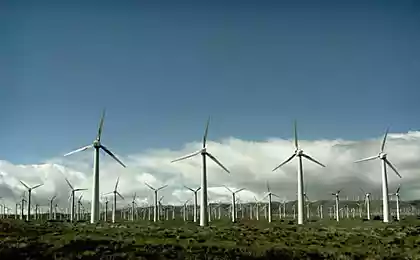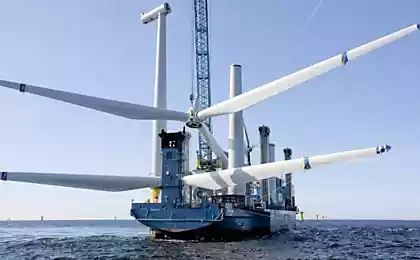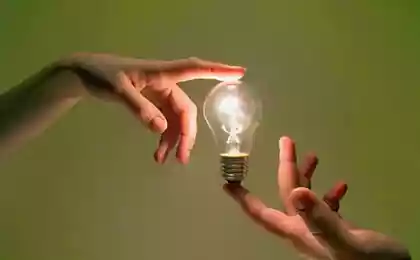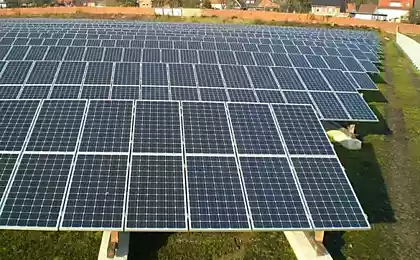173
Unexpected leaders in the race for renewable energy
The media is full of news about countries with economies in transition that are actively working on the introduction of clean technologies, and this activity is constantly increasing in scope and pace. Adding to this the clear desire of a number of oil-based advanced economies to find alternative ways to generate energy, it becomes clear that a low-carbon future is not far off.
We offer you to learn about the countries showing unexpectedly high activity in the introduction of renewable energy sources.
Bhutan switches to electric vehicles A small country in the Himalayas called Bhutan has already announced its intention to become one hundred percent organic nation of the Earth, and in an attempt to reduce the amount of exhaust gases there is a weekly Pedestrian Day. Bhutan is working with Nissan to halt imports of fossil fuels and introduce electric cars. At the first stage, the state apparatus and taxi drivers will be transferred to battery-powered cars, and the government has no doubt that as the popularity and infrastructure of charging stations advances, electric cars will become known among the population of the country. (At the very least, that part of the population has the ability to buy an electric car and have access to electricity.)
Iran plans to receive 5,000 megawatts of wind and solar power by 2018 As an oil state with a relatively totalitarian regime, Iran rarely comes to mind when it comes to a progressive energy future. But the pressure of international sanctions and increased energy demands have created a post-revolutionary spike in fertility that has forced Iran to diversify its energy portfolio.
Nuclear power is a significant factor in Iran’s plans, but the government is now investing large sums in wind and solar power plants. Iranian Energy Minister Hamid Chitchian said that by 2018, the country’s energy reserves will increase by as much as 5,000 megawatts thanks to wind and sun.
Iran is moving towards clean energy systems. But there is also a paradox here: the oil states are increasingly interested in renewable energy, both to recycle more fossil fuels and reduce local consumption to boost exports.
Norway introduces electric vehicles and is considering a complete abandonment of fossil fuels In terms of fossil-fuel economies, Norway is at the opposite end of the list to Iran. But the oil-rich Scandinavian democracy is also looking for energy alternatives. Thanks to its many fjords, it already boasts a number of hydroelectric power plants, and in recent years the country has become one of the world’s leading in the introduction of electric cars.
And recently, Norway’s energy policy took an interesting turn when parliamentarians took up the issue of ending fossil fuel financing from the National Welfare Fund. This issue is all the more important when one considers that the Fund itself was largely created by natural gas and oil revenues.
There are pragmatic reasons for capital outflows: given Norway’s dependence on fossil fuels, outflows from fossil fuels are a great way to hedge against a rapid transition to clean energy.
Nigeria plans to produce 3,000 megawatts of solar power in Delta state Nigeria has made headlines recently for a number of negative reasons, such as the abduction of hundreds of schoolgirls, as well as bombings and Islamist raids. Such conflicts are directly linked to resentment over the glaring inequality and corruption in this major oil-producing country.
The announcement that Nigeria is working with SkyPower FAS Energy to build a 3,000 megawatt solar power plant over the next five years has received a lot of public support. Let us hope that solar power will be more effective than the oil industry in terms of sharing the benefits that are, in fact, a common resource.
India to electrify every home by 2019 with solar power To date, many rural areas in India have already experienced the benefits of solar power, but there is still a lot to do. Recently, Prime Minister Narendra Modi announced a grand goal to provide electricity to 400,000 people who currently do not have access to this resource. How will the newly appointed prime minister achieve this goal?
Of course, with solar energy. According to the representative of the Prime Minister for energy, each farm will be able to light at least two light bulbs, turn on the TV, and cook food on a solar stove. The reasons for the key role of solar energy in achieving this goal are both pragmatic and ideological, because the choice between the rapid development of distributed solar energy and the expectation of building fossil fuel power plants with the appropriate infrastructure is obvious.
- renewable
- fossil fuel
- oil-producing countries
Source: facepla.net
Stylish garden gadgets for advanced summer residents
Chinese scientists Internet addiction is recognized as a narcotic























